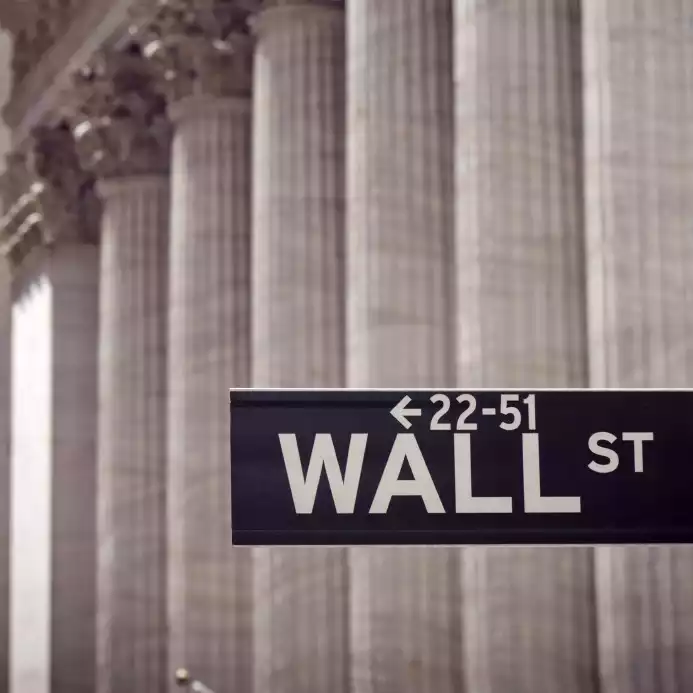These days everyone seems to be striving to look richer, we're here to make a case for why it can actually pay off to look poor. Yes, you read that right. While the flashy cars, designer labels, and opulent lifestyles of the wealthy often steal the limelight, there's a real-world advantage to maintaining a modest appearance. In this article, we'll explore nine compelling reasons why looking poor may be the smarter choice, backed by real-life examples.
1. Financial Freedom Over Flashiness
In America, the pursuit of wealth and success often revolves around looking the part. But what if we told you that financial freedom trumps flaunting riches? It's a concept embraced by many successful individuals. One of the world's richest people, Warren Buffett, prefers a frugal lifestyle despite his immense net worth.
For Warren Buffett, the billionaire investor known as the Oracle of Omaha, financial freedom means not being shackled by extravagant spending. Despite his wealth, he chooses to live in the same modest house he bought in 1958 for $31,500. His simple lifestyle allows him to prioritize investments and financial security over flashy displays of wealth.
2. The High-Income Paradox
Surprisingly, high-income earners are often the ones who understand the value of appearing less affluent. By keeping up the appearance of a middle-class lifestyle, they can save more money, invest wisely, and achieve true financial security. It's about the long game, as exemplified by wealthy celebrities like Jay Leno, who famously lives off his stand-up comedy income and invests the rest.
Jay Leno, the former host of "The Tonight Show," has a net worth in the hundreds of millions. Yet, he doesn't lead an ostentatious life. He keeps his comedy show income as his primary source of living expenses and invests his earnings from other ventures. His frugality allows him to secure his financial future regardless of his substantial income.
3. The Side Hustles Secret
Looking poor isn't just about saving money; it's also a way to diversify income streams. Many wealthy people engage in side hustles that bring in extra cash. Take Gwyneth Paltrow, for instance, an actress and businesswoman who sold used clothes on eBay to boost her income.
Gwyneth Paltrow, renowned for her acting career and successful wellness company, Goop, also understands the value of side income. She has sold her used clothing and children's items on eBay, showing that even individuals with substantial wealth recognize the importance of multiple income streams.
4. Health Care Harmony
In America, access to quality healthcare can be a game-changer. Looking poor, especially when it comes to health insurance, can lead to more affordable options. Even millionaire Mark Cuban, known for his entrepreneurial ventures, understands the significance of smart healthcare decisions.
Mark Cuban, a billionaire investor and owner of the Dallas Mavericks, recognizes the importance of making informed decisions regarding health insurance. By not overpaying for insurance or medical expenses, he ensures that his wealth is wisely managed, focusing on what truly matters—personal well-being.
5. Real Estate Riches: The Quiet Approach
New York City, a hub of wealth and real estate, is a prime example of why looking poor can be a strategic move. Many well-off individuals prefer low-profile apartments over extravagant penthouses, emphasizing location and privacy over ostentatious living spaces.
In New York City, some of the wealthiest individuals, including business magnates and celebrities, choose to live in upscale apartments that may not immediately scream opulence. They prioritize location, privacy, and practicality over extravagant displays of wealth. This choice allows them to enjoy the benefits of prime real estate without unnecessary extravagance.
6. The English Sense of Frugality
Across the pond, the English have a strong sense of frugality. The likes of Hugh Grant, a British actor, are known for their understated lifestyles despite their international fame. It's a reminder that looking poor can be culturally ingrained.
Hugh Grant, the famous British actor, maintains a relatively modest lifestyle despite his fame. He exemplifies how cultural values influence the choice to lead a life that is rich in experiences and purpose rather than lavish spending. His story reminds us that the cultural context can play a significant role in embracing a modest appearance.
7. Savings and the Million-Dollar Mindset
You don't need to be a millionaire to have a million-dollar mindset. Individuals of all income levels recognize the power of saving money. A prime example is Dave Ramsey, a personal finance guru who advocates for a frugal lifestyle to achieve financial independence.
Dave Ramsey, an influential voice in personal finance, teaches people to manage their money wisely regardless of their income level. His philosophy revolves around living within one's means, eliminating debt, and building savings. This mindset allows people to prioritize financial security and independence over extravagant spending.
8. Well-Being Trumps Wealth
Wealthy people understand that true well-being goes beyond the balance in your bank account. Real wealth is having the freedom to enjoy life without being tethered to material possessions. Minimalist guru Marie Kondo is a prime example of prioritizing well-being over the accumulation of things.
Marie Kondo, an internationally recognized organization expert and author, advocates for minimalism. Her approach emphasizes decluttering and keeping only the items that spark joy. By prioritizing well-being and happiness over materialism, she highlights that a rich and fulfilling life is not solely defined by the accumulation of wealth and possessions.
9. The Real World Benefits
In the real world, looking poor can have its tangible advantages. It can lead to financial security, opportunities for investment, and a focus on well-being over wealth. So, if you're worried about keeping up with the Joneses, remember that even the wealthiest people in the world understand the importance of looking modest.
In Summary
Nowadays, with the spotlight often shining on the rich and famous, it's easy to forget that looking poor can be a smart and strategic choice. Real-life examples of individuals like Warren Buffett, Jay Leno, Gwyneth Paltrow, and many others show that financial freedom, a high-income paradox, side hustles, and a focus on health care, real estate, and well-being are just a few of the compelling reasons why looking poor can be a financially savvy decision. So, next time you contemplate flaunting your riches, remember the wisdom of those who understand the true value of modesty.









